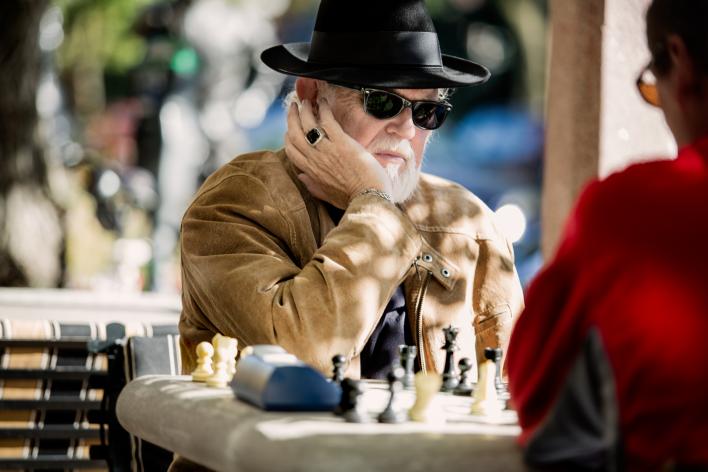
by Emily Sholtis & Anna Nicotera, Basis Policy Research
Worldwide, our population is aging. Advances in technology and medicine have lengthened the global average life expectancy to over 80 years according to the Organization for Economic Cooperation and Development (OECD). Unfortunately, this increase in the length of life hasn’t necessarily been accompanied by an increase in the quality of life. Many elderly struggle with depression, isolation and mental deterioration.
In a 2015 presentation at the London Chess Conference, Karel van Delft offers an interesting cure: chess.
Using his background as a psychologist and journalist, van Delft collected findings from neuropsychologists, medical doctors and neurobiologists to see if chess could help counteract some of the side effects of aging. By collecting their works, van Delft found strong evidence that chess has clear, measurable benefits for the elderly.
These benefits fall into three categories: social, physical and mental. First, chess provides the elderly with a hobby and opportunities for socialization. Increased socialization helps improve self-images, decrease the risk of depression, and strengthen overall emotional health. Second, as a byproduct of improved socialization, elderly chess players enjoy better physical health. Chess stimulates the brain strengthening mental capacity and information retention. Additional research has linked chess to lower rates dementia in active players. Of all current chess grandmasters, none show signs of dementia.
The third and greatest benefit of chess however comes in the form of improved mental health. Adding chess into their routine helps improve the plasticity of elderly brains. Much like a muscle, the brain weakens if it is not regularly strained. Playing chess actively engages the brain and has been shown to strengthen logical reasoning and problem solving amongst the elderly. These mental benefits also further improve social and physical health. This results in an improved quality of life for elderly chess players. To capitalize on this, van Delft has suggested exploring the potential application of chess with stroke victims or other long-term patients within rehabilitation centers and hospitals.
For more information on van Delft’s work as well as access to his other works, visit his English language website.


